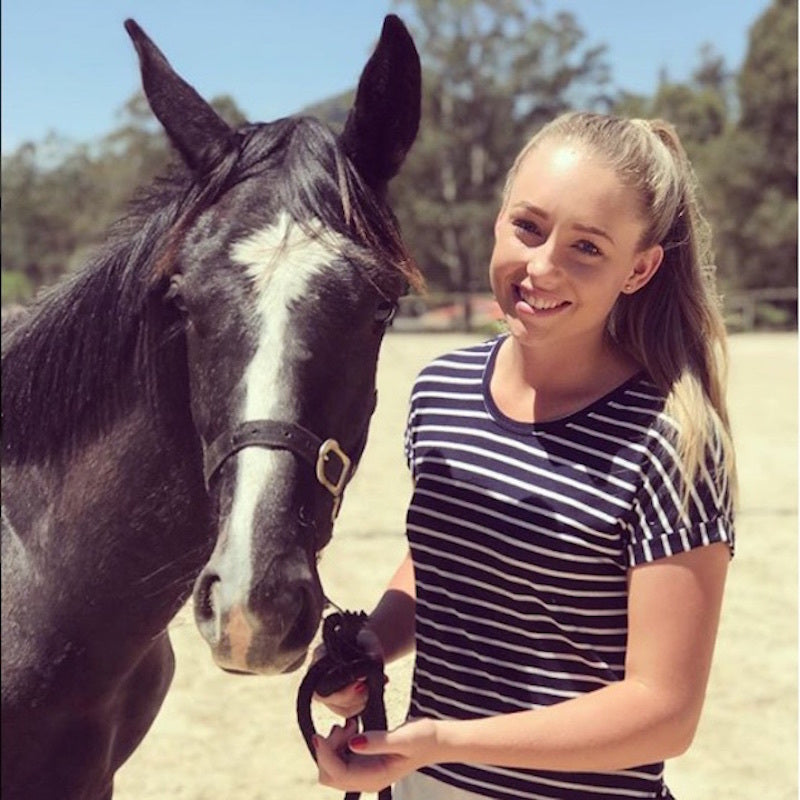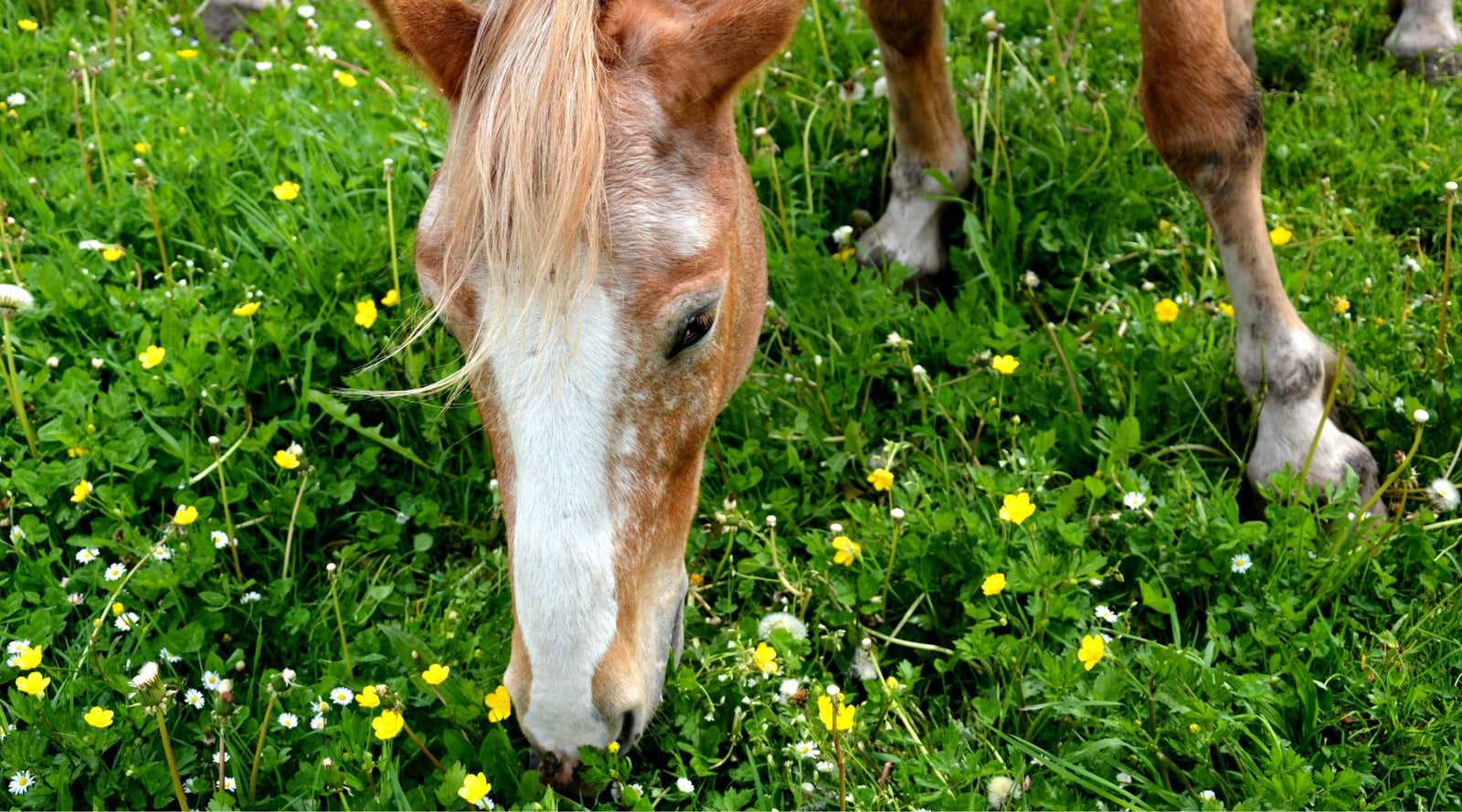Triple Hippo Rewards points are now available on all purchases made before midnight 24th February 2026.
Triple Hippo Rewards points are now available on all purchases made before midnight 24th February 2026.
Horse & Rider
Itchy Dog? Tips for identifying and managing skin conditions
by Fiona Lane February 27, 2026

Few things are more distressing than watching an itchy dog scratch, chew or lick constantly. Skin issues are among the most common reasons dogs visit the vet, and they can have many underlying causes, including flea bites, grass allergies, anxiety, dietary or environmental irritants. Some breeds, such as West Highland Terriers and German Shepherds, are genetically predisposed to chronic skin conditions - particularly atopic dermatitis and recurrent infections - which can make them more vulnerable to ongoing flare-ups. The challenge is that “itchy skin” is a symptom, not a diagnosis, so identifying the cause is the key to finding the right solution.
In this post, we share practical tips for recognising common dog skin conditions and what you can do to help at home. From checking paws and tails for tell-tale signs to making small changes in diet, environment, and grooming habits, these insights can help you get your dog’s itch under control naturally and effectively.
Key Highlights
- In dogs, an itchy belly and paws usually point to a contact allergy from grass or lawn sprays. Rinse paws after walks and limit contact with freshly sprayed areas.
- Itchy front paws only may indicate anxiety or compulsive licking (a psychogenic itch). Identify stress triggers such as separation or change in routine, and provide enrichment and calm spaces.
- Licking all four paws can relate to dietary imbalances or sensitivities. Review your dog’s food for hidden additives, sulphur dioxide, or high salt levels and consider consulting a raw-feeding specialist.
- Dogs that are itchy all over with an odour may have seborrhea-related skin issues where oil and bacteria build up on the skin. Regular bathing with mild, natural shampoos and diet adjustments can help.
- Certain breeds, such as Westies and German Shepherds, are especially prone to chronic atopic dermatitis and secondary infections, meaning early intervention and ongoing support are crucial.
- Itchy base of the tail is often caused by fleas or flea allergy dermatitis. Regular flea checks and early intervention can prevent secondary infections.
- Dogs that are itchy but have clean coat with pink blotches may be experiencing an environmental or dust allergy. Wash bedding weekly and vacuum soft furnishings frequently to reduce dust exposure.
- A red, itchy chin is sometimes linked to stainless-steel water bowls. Try switching to a food-grade ceramic or glass bowl to reduce irritation.
- Other skin issues, such as seasonal sensitivities, sunburn, or dry skin, can all cause itching. Regular grooming and natural sun protection help maintain healthy skin.
- We recommend seeing your vet if your dog has persistent itching, bleeding, or hair loss so they can rule out infection or systemic allergies.
Whether your dog’s itching stems from allergies, anxiety or environmental factors, small daily adjustments can make a big difference. Read on for expert tips to help you pinpoint the cause of your dog’s skin irritation — and simple ways to support healthier, happier skin naturally.
Itchy belly and all four paws
If these are the only areas that are itchy, it’s likely your dog has a Contact Allergy. Bellies and paws don’t have a lot of fur coverage, which makes them susceptible to irritation from grasses or a reaction to weed sprays. Sometimes their chins and bottoms can also be affected, particularly if they are a breed that has a thin coat. Contact allergies are usually seasonal and so often flare up in spring and summer when certain grasses are around.
Keeping dogs away from grass isn’t easy, but dosing them with our BioPet Grasses remedy is! Just a couple of pumps in the water bowl each day is all it takes to support a healthy immune response to grass allergies in dogs.
Itchy front paws only
If it’s just the front paws that are affected, it’s unlikely to be a contact allergy, given dogs walk on all four paws! It’s more likely to be caused by a Psychogenic Itch, triggered anxiety or grief associated with situations like moving house, being rehomed, or being separated from their pack (including their favourite humans!). It can also come from more generalised anxiety – this constant licking of paws can be likened to people chewing their nails – so it can also be a habit or compulsive behaviour that started many years ago.
Our Chewing Paws remedy supports dogs who intensely lick or constantly chew their front paws. For more generalised anxiety or compulsive behaviours, try our BioPet Relax remedy.
Dogs that constantly lick all four paws may be producing an acrid sweat in response to dietary issues. Dogs only have sweat glands between their toes, so if they are obsessed with cleaning and licking between their toes on all four feet, it could be that a change of diet is needed.
Itchy all over and a bit smelly
Dogs that are itchy all over are usually affected by Generalised Itching which tends to come from the inside out – the gut.
The itching is caused by the production of seborrhea (grease) that covers the surface of the skin. The natural bacteria on the dog’s skin love to feed on the seborrhea, and this ready supply of food makes them multiply rapidly. It’s the waste these bacteria secrete that causes the relentless itchiness for the dog.
The incessant scratching can break the skin, which opens the door to bacteria getting into the wounds and causing infection.
What causes an increase in seborrhea?
Often it’s because the dog isn’t coping with the amount of salt or sulphur dioxide (SO2) in their diet. Sulphur dioxide is present in quite a lot of fresh dog food, and frustratingly, this additive doesn’t have to be declared on the packaging. In addition, dog rolls and biscuits can sometimes be very high in salt. Some dogs eat these foods without any problem at all, while others end up with problem skin.
Our BioPet Skin remedy targets the seborrhea cycle, which can help to relieve symptoms; however, to treat the cause, it’s worthwhile talking to a raw feeding expert like www.rawessentials.co.nz to discuss how diet can help with chronic skin conditions.
West Highland Terriers are particularly prone to Atopic Dermatitis (allergies), which can cause intense itching, red or flaky skin, hair loss and recurring “hot spots.” These allergies are often triggered by food sensitivities, environmental allergens such as pollen or dust, or fleas. Secondary yeast infections are also common in this breed, often resulting in a blackened, oily, or foul-smelling coat. our Westie Skin remedy has been formulated to specifically support the unique skin challenges faced by this breed.
German Shepherds are another breed particularly vulnerable to Atopic Dermatitis, food allergies, and bacterial infections such as pyoderma. These conditions can present as severe itching, hair loss, scabs, thickened skin and ongoing inflammation. Common triggers include flea allergies, parasites, and even hormonal imbalances. Our German Shepherd Skin remedy has been developed to complement good management and veterinary care for this highly susceptible breed.
Itchy at the Base of the Tail
Fleas love to set up shop at the base of the tail because it’s difficult for dogs – and cats – to reach around and bite them! If your pet has scurfy or gritty skin in that area or is constantly chewing or scratching there, fleas are your prime suspect.
To check for fleas, comb the area, then tap the comb onto a wet paper towel and leave it for 10 minutes. Flea poop contains blood, so if there are red blotches on the paper towel, this means the water has dissolved the poop, leaving blood as a tell-tale sign that fleas are present.
Flea Allergy Dermatitis
Some dogs – and cats – have an immune system which overreacts to flea saliva, causing an inflammatory response that includes severe itching, scabbing and even hair loss. While this can be distressing for the dog, the good news is that if you get rid of the fleas with a product like our Flea Allergy – Pets remedy, you’ll also get rid of the dermatitis.
Itchy all over with a healthy, clean coat, but some pale pink blotching
Dogs that have lovely coats but still itch all year round without any signs of fleas or other ailments may be allergic to carpet or house dust. Even the cleanest house with nothing but wooden floors can still cause problems for animals with an immune system that overreacts to the slightest irritation from the dust in things like upholstery or bedding.
Often, the only sign is pale pink, round blotches on their skin, which you’ll see when you part their fur. Some treatments focus on the prolonged use of steroids to suppress the immune system, however, our Dust Allergy Remedy for pets helps to manage the immune response to these allergens.
Itchy, Red Chin
It took us a while to work this one out, but it seems dogs with an itchy, inflamed chin and lips are usually drinking from a stainless steel water bowl. Water sits in these bowls for hours, allowing off-gassing from the bowl to taint the water, causing irritation. Interestingly, using a stainless steel bowl for food doesn’t cause irritation, as the food doesn’t sit in there for long enough.
When selecting a water bowl for your dog, we recommend a bowl from your kitchen (food grade), e.g. a casserole dish or ice-cream container. If you have your heart set on a stainless steel bowl, choose one that is made in America, where they add Boron to the steel. You will feel the difference in weight and usually price, as the American stainless steel bowls are much heavier.
If you suspect this is the issue for your dog, try our Detox Plus - Pets remedy.
Other skin conditions
We have a whole range of remedies for a whole range of skin conditions, including our ground breaking Sol Plus – Pets remedy for dogs (and cats) with white or pink skin.
Final thoughts
An itchy dog is often a sign that something in their body or environment needs to change. By paying close attention to where and how your dog itches, you can often narrow down the cause and take practical steps to help by adjusting their diet, swapping out a water bowl, or managing seasonal allergens.
Consistent grooming, a balanced diet, and a clean environment all go a long way toward keeping your dog’s skin healthy. And if the itch persists, don’t hesitate to chat with your vet as catching skin issues early prevents small irritations from becoming big problems.

Homeopathic Practitioner | BA, Dip Ed, Dip Hom AH (Animal Health)
Fiona J. Lane
Fiona Lane is the Founder of Hippo Health and an accomplished Animal Homeopath. Driven by a passion for effective and affordable natural health, she has formulated the Hippo Health and BioPet ranges of innovative, non-toxic remedies. Fiona is dedicated to providing straightforward, trusted solutions that support the well-being of horses, pets, livestock and people.
General Disclaimer: Always follow dosing instructions. Our remedies are formulated to support the natural immune system of horses, pets, livestock, and people. We do not claim to treat, medicate, or cure any health conditions. If you are worried an animal may be in pain or suffering, please contact your veterinarian.



